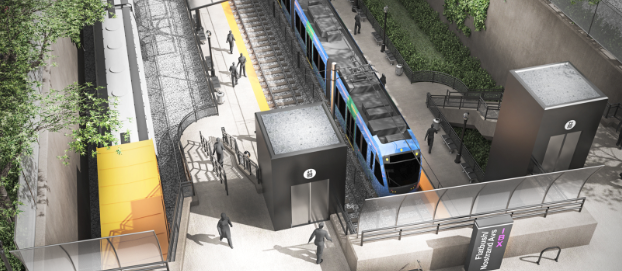The new light rail line connecting Brooklyn and Queens will have 19 stations and a 32-minute end-to-end run time.
The Metropolitan Transportation Authority has kicked off the environmental review process for the Interborough Express (IBX), a major step forward for the long-anticipated rail line connecting Brooklyn and Queens.
The review marks the first key milestone since the project entered its preliminary engineering and design phase in August. The environmental review, conducted under the New York State Environmental Quality Review Act, will run alongside ongoing design and engineering work.
It will evaluate the potential environmental benefits and impacts of the IBX while incorporating input from the public through a series of meetings and community engagement sessions.
Three public scoping meetings will open the process, beginning Wednesday, Oct. 29, at Brooklyn College, followed by a session on Thursday, Nov. 6, at Christ the King High School in Middle Village, Queens and a virtual meeting on Wednesday, Nov. 12.
The IBX project aims to transform travel for more than 160,000 daily riders, connecting nearly 900,000 New Yorkers in underserved neighborhoods along a 14-mile corridor between Brooklyn and Queens. With a projected end-to-end run time of 32 minutes, the new light rail line will link to 17 subway lines, 50 bus routes and two Long Island Rail Road stations, dramatically cutting cross-borough travel times.
“900,000 New Yorkers live along the proposed IBX route, and we’re not going to waste any time advancing this project for them. Launching the State environmental review process gives us the momentum we need to move this transformational effort toward construction,” said Janno Lieber, the chair and chief executive officer of the MTA.
The MTA selected a joint venture between Jacobs and HDR to lead the design and engineering phase. Plans call for 19 new stations, making the IBX the first end-to-end rapid transit line built entirely within New York City since the G train’s completion in 1937.
The design phase is funded primarily through $45 million secured in the 2025 New York State budget and the MTA’s 2025–2029 Capital Plan. The total estimated cost of the project is $5.5 billion, with half of that amount already committed.

